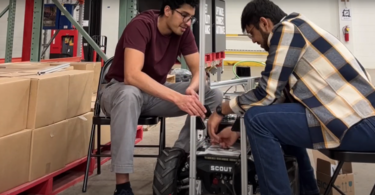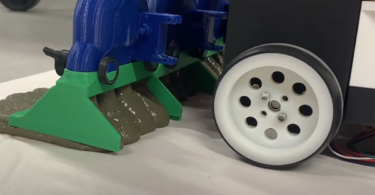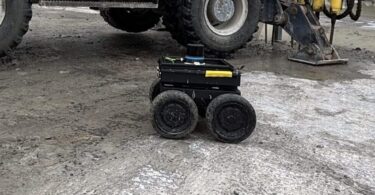SICK AG Project Manager Gives Back to Children in Ethiopia
At Selam Children’s Village, numerous people work to create a better life for the children in Ethiopia. SICK AG Project Manager, Carsten Rotzsch, is one of those people who used his skills to provide donations from SICK. On his many trips to Ethiopia, he has worked to improve the training of electrical engineers in Selam Children’s Village in Ethiopia, with a little help from his personal dedication and material donations from SICK.
“Ethiopia has a wonderful mild climate and, away from the desert areas, a lot of fertile land,” Rotzsch said. “After many years of civil war, the country is now largely at peace and the economy is growing.”
Despite this, there is a lot to do to improve the living conditions of the people here, but Rotzsch does what he can to help.
“The most sustainable thing is to help the young adults with vocational training, preparing them for the challenges of the employment market,” Rotzsch said. “They can then escape poverty and have prospects in their own country.”
The roughly 500 children and youth who live in Selam Children’s Village in the capital city of Addis Ababa have good prerequisites for this. They receive ten years of schooling and can then take a three-year course in various subjects, including a courses on construction and industrial electrics.
But until recently, the electronics course was inadequate due to a lack of teaching materials. Only the simplest of wiring tasks could be carried out – with terminal strips, switches, and lights on wooden boards. There was no provision of practical knowledge on using modern electrotechnical components and sensor technology.
“This does not qualify anyone for technical work on machines in modern industrial parks, which are becoming more common in Ethiopia,” Rotzsch said.
He has improved the training in Selam Children’s Village during the last year on his own initiative and with material donatations from SICK.
“SICK sensors booked as rejects sometimes only have minor faults that make them unsuitable for sale,” he said. “They are, however, well-suited for teaching with.”
So, various production managers helped sort out defective sensors from SICK for the school workshop. And at his own expense, Rotzsch buys electrotechnical material to construct small sensor solutions. Five switching cabinets with voltage supply, relays, terminals, and sensors are now standing in the workshop, enabling well-founded practical training.
But how do the materials get to Ethiopia?
“Apart from myself, members of the Selam sponsoring association occasionally fly to Addis Ababa to handle upcoming building work. We then take packages with us. This is the most reasonable way,” Rotzsch said, who was in Ethiopia three times last year. “So they now have simple basic equipment there.”
He also offered training courses for the teachers during each visit to provide a better understanding of the materials provided by SICK and Rotzsch.
“I give some of the training courses; others are done by friendly engineers or technicians. Because what good is the best material if the knowledge of how to use it properly is lacking?”
In the coming months, more sensors and small Siemens controllers will be delivered to the village, along with donations from SICK AG of 30 decommissioned industrial PCs.
“The improvement in electronics training was, and is, an urgent requirement in Selam. And I can do a lot with my knowledge and expertise,” Rotzsch said. “I'm helping people in very concrete ways, and seeing their skill development and gratitude makes me very happy.”
If you would like to support Selam Children's Village, visit their website.









